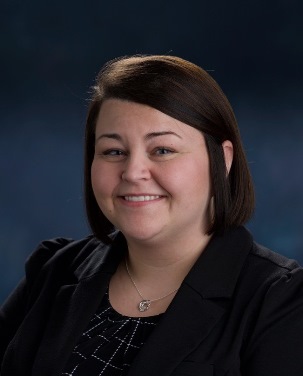

Serving Kansas City (Wyandotte County) Kansas for over 50 years!


by Celia Llopis-Jepsen, Kansas News Service
Topeka – Members of a Topeka hospital’s board — and a separate board focused on its fundraising — got COVID-19 vaccinations during the first phase of the immunization rollout when the coveted shots were meant for people at greatest risk from infection.
While thousands of Kansans who live in assisted living centers, work in schools or grocery stores, or respond to fires and other 911 emergencies wait in line for the second phase of the rollout, board members and fundraising leaders at Stormont Vail Health got offered the shots earlier.
But Phase 1 focused on nursing homes and health care workers. State health officials say fundraising boards were not part of it.
A spokeswoman for the state health department said “we would direct you to the specific hospital for how they made the determination” to vaccinate board members.
As for hospital boards, neither state nor federal guidelines say someone should get the shot simply for being a member.
The Centers for Disease Control and Prevention guidelines for early access recommend vaccinating unpaid health care workers if they “have the potential for direct or indirect exposure to patients or infectious materials.”
The Kansas plan similarly lists unpaid people “in healthcare or healthcare-associated jobs, who are unable to work from home and may be directly or indirectly exposed to patients or infectious materials as a result of their job.”
A spokesman for Stormont Vail Health defended giving early access to the fundraising and hospital boards. Their decisions help govern the hospital and “make sure that everything’s running day to day,” Matt Lara told the Kansas News Service.
He said state health officials agreed the hospital could give vaccines to its team.
“For us, our team members include … our boards,” Lara said. “So, yes, the foundation board did receive the vaccine.”
Stormont Vail workers who see patients got the shots first, though, he said.
Phase 1 of the vaccine rollout in Kansas focused on nursing homes, health care workers and other workers critical to the pandemic response.
Both the state and federal guidance offer lots of examples, but don’t name boards and fundraising leaders.
Kansas moved to Phase 2 of vaccine distribution last week.
That phase includes group living situations (such as assisted living and prisons), teachers, police, and other critical workers whose jobs put them in close contact with a lot of people and potential coronavirus germs.
Boards typically give long-term direction to staff. They include unpaid community members who are separate from the paid hospital and foundation staff. They’re often recruited based on their ability to give or raise money or to represent a segment of the community.
Stormont Vail’s tax forms indicate that hospital board members spend an average of three hours a week on their duties, and that members of the Stormont Vail Foundation invest one hour a week.
The foundation is the not-for-profit hospital’s fundraising entity. It reported about $2.8 million in gifts and grants for 2018, according to tax forms filed to the IRS.
Facilities in other states have also allowed their hospital and fundraising boards to jump ahead in the vaccination line. That’s sparked criticism.
This month, the New York State Department of Health said it would investigate one facility over that decision. Boards aren’t the same as volunteers who work at the hospital daily, the department told the Times Herald-Record. The agency said frontline workers should be “insulted” by the argument that board members qualified for the shots.
A Virginia hospital also gave its board members early access, arguing that they are volunteers.
In Washington state, a hospital invited board members, top donors and others to get their shots over the weekend, even though the facility’s public waitlist was booked through March. It backtracked when the governor’s office complained.
At least four other hospitals in California and Florida have drawn public scrutiny over board members or donors receiving shots early in the rollout.
Counties set priorities locally for how to handle the bottleneck of eager vaccine seekers in those groups. When Douglas County opened its first 500 slots for Phase 2, people grabbed up all the slots in less than half an hour, The Lawrence Journal-World reported.
In a public update this week, Stormont Vail CEO Robert Kenagy said his hospital is working with the county health department to help with the rollout, and is “primarily charged with reaching out to patients 65 and older.”
The hospital has more than 60,000 patients in that age group, so it kicked off Phase 2 on Monday by giving priority to those over the age of 74, Kenagy said.
“We are in a situation currently where demand for the vaccine is greater than supply,” he wrote. “We are working diligently to get the vaccine supply we receive into the arms of our community members as safely and quickly as possible.”
Celia Llopis-Jepsen reports on consumer health and education for the Kansas News Service. You can follow her on Twitter @celia_LJ or email her at celia (at) kcur (dot) org. The Kansas News Service is a collaboration of KCUR, Kansas Public Radio, KMUW and High Plains Public Radio focused on health, the social determinants of health and their connection to public policy.
Kansas News Service stories and photos may be republished by news media at no cost with proper attribution and a link to ksnewsservice.org.
See more at https://www.kcur.org/news/2021-01-27/members-of-a-topeka-hospital-board-and-its-fundraising-foundation-got-early-covid-shots.

Bank of Labor Vice President Kimberly Noland recently received the Certified Treasury Professional credential.
Nolan, a treasury management officer, is one of a small number of community bank professionals in the region to hold the designation.
Nolan joined Bank of Labor in Kansas City, Kansas, in 2019 and has 15 years of experience in commercial banking, with an expertise in consultative solutions and risk mitigation.
“Kim was already an impressive treasury management professional,” said Alyssa Prasil, Bank of Labor’s division manager of treasury services and operations. “The CTP certification just enhances her ability to help clients choose the smartest ways to maximize their cashflow and mitigate risk.”
According to Investopedia, a website specializing in investing and finance education, CTP designation is considered a notable benchmark for experienced financial professionals.
“Earning the CTP designation allows me to better advise and help organizations and businesses meet their strategic goals,” Nolan said. “Earning the certification took a significant amount of time and effort but it’s important because it demonstrates ethical values and an understanding of complex corporate treasury, cash flow, and risk mitigation for organizations of all shapes and sizes.”
Nolan holds a Master of Business Administration from Pittsburg State University and a Bachelor of Arts from the University of Kansas.
According to the Association for Financial Professionals, CTP certification measures an individual’s broad-based knowledge and competency in treasury and cash management. To receive certification, several years of work experience, months of preparation and successful completion of an extensive exam are required. AFP reports that there are only 12,000 business leaders with active CTP certification across the world, with 75% in the U.S. and just 35% of those in banking.